2025 Carmine Caruso Competition
The Carmine Caruso International Jazz Trumpet Solo Competition
 Sponsored by the International Trumpet Guild
Sponsored by the International Trumpet Guildin cooperation with the Herb Alpert Foundation

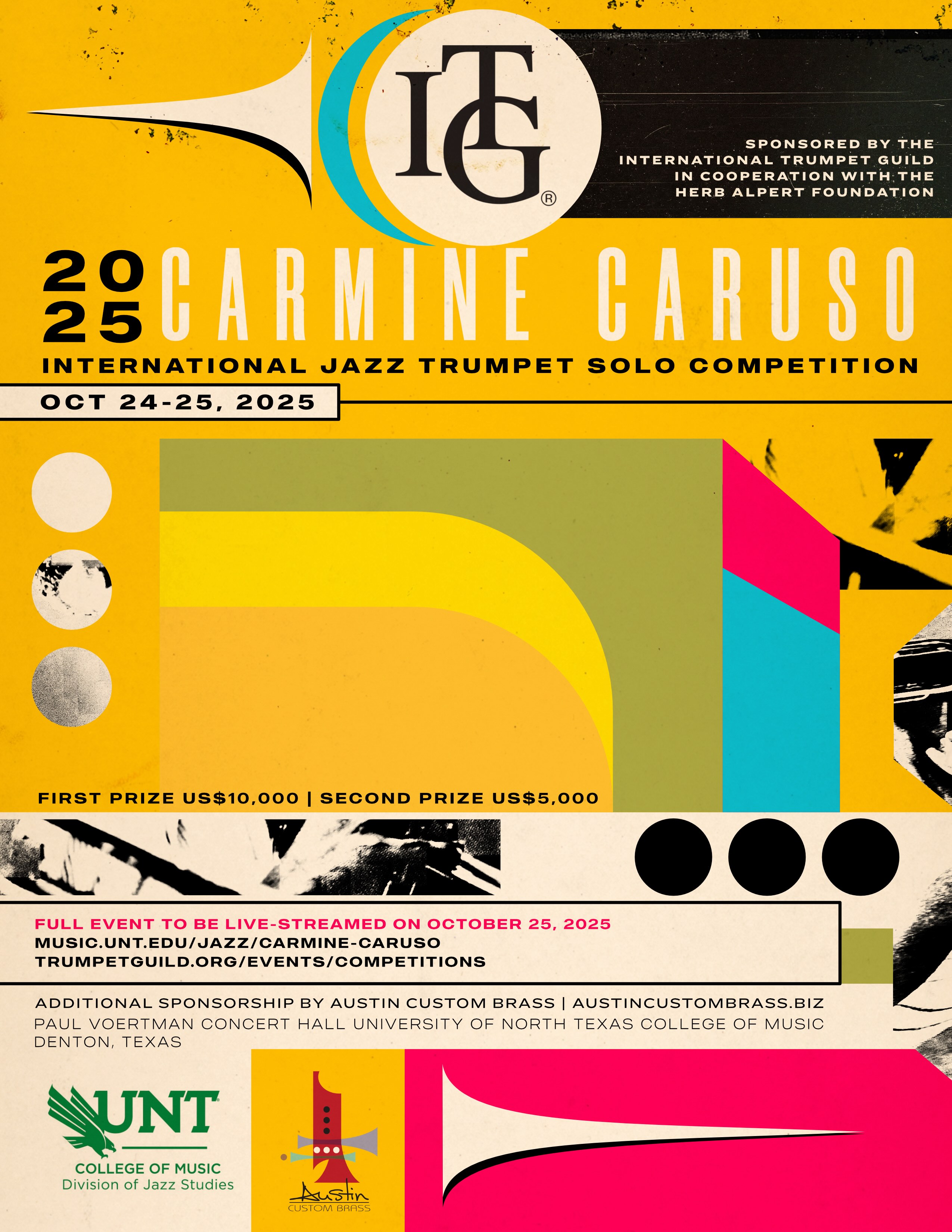
OCT 25 LIVE STREAM LINK
The world’s most prestigious competition for jazz trumpeters comes to Denton and the University of North Texas.
Carmine Caruso was one of the world's greatest brass teachers. It is to this man and his work that the 2025 Carmine Caruso International Jazz Trumpet Solo Competition is dedicated. All of Saturday's events are open to the public and will be held at the UNT College of Music, Paul Voertman Concert Hall, in Denton, Texas on October 25th, 2025.
$10,000 First Prize | $5,000 Second Prize
Host: Philip Dizack
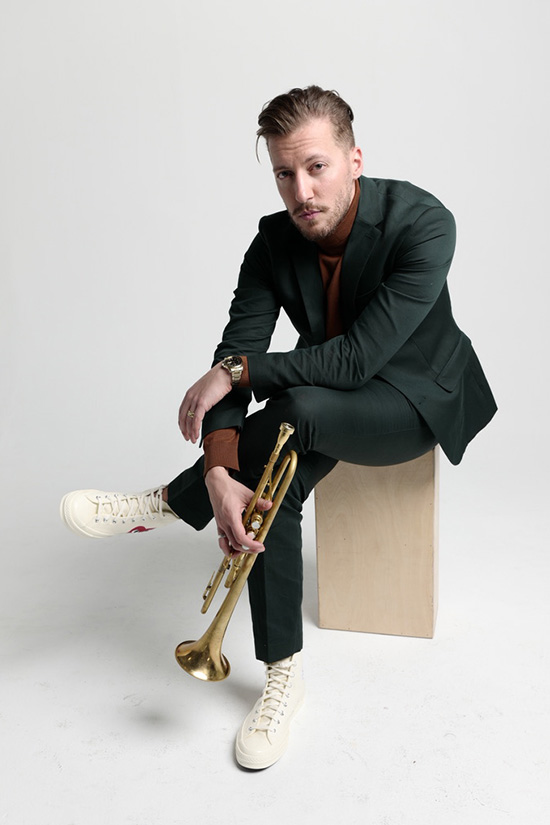 Philip Dizack
Philip Dizack
Associate Professor of Jazz Trumpet - Improvisation Emphasis & Coordinator of Jazz Chamber Music | Philip.Dizack@unt.edu
Philip Dizack is an artist and educator of vision—one of the defining jazz trumpeters of his generation, a musician whose sound carries both the weight of tradition and the urgency of the moment. Heralded by DownBeat Magazine as “[one of twenty-five] Trumpet Players for the Future,” Dizack has forged a path that is at once deeply rooted in jazz’s lineage and strikingly modern.
His artistry is shaped by an unyielding pursuit of expression—an approach cultivated through formative years spent alongside jazz luminaries. As a young musician, Dizack performed, toured, and recorded with Jazz Messenger Bobby Watson and eight-time GRAMMY-winning Latin jazz legend Eddie Palmieri. His voice on the trumpet, equal parts fire and lyricism, has since led him to collaborate with a vast spectrum of artists, unbound by genre or generation.
His latest project, Brass Regalia, is his most ambitious and personal statement yet—a powerful 80-minute work for jazz quartet and nine-piece brass ensemble, recorded in 2025 in collaboration with Swiss National Radio and premiered at the Tinguley Museum, Bird’s Eye, and the Vienna Concert Hall. Rooted in Dizack’s own experiences of childhood trauma, healing, and resilience, Brass Regalia distills a deeply personal narrative into an evocative and cinematic soundscape. The ensemble featured Shai Maestro (piano), Matt Penman (bass), and Kendrick Scott (drums), alongside his 9-piece brass ensemble.
Dizack’s presence on the global stage extends far beyond his own projects. His collaboration with pianist Shai Maestro as part of Maestro’s expanded quartet has garnered international acclaim, with their ECM release Human (2021) praised as an arresting statement of beauty. Additionally, Dizack was a featured soloist on Remy LeBeouf’s Assembly of Shadows, a recording that earned two GRAMMY nominations for Best Instrumental Composition and Best Instrumental Arrangement.
Having performed in over 30 countries, Dizack’s career spans intimate jazz clubs to sprawling arenas, film soundtracks to late-night television performances. His vast list of collaborators include Wycliffe Gordon, Kamasi Washington, Immanuel Wilkins, Aaron Parks, Thundercat, Jon Batiste, The Village Vanguard Orchestra, Melissa Aldana, Ben Wendel, and The Nicholas Payton Television Studio Orchestra, among many others—including cross-genre performances with icons such as Morrissey and Foreigner. His appearances at many major festivals and venues around the world include the likes of Carnegie Hall, The Apollo, SNL, Rock in Rio, and many many more.
Born and raised in Milwaukee, Wisconsin, Dizack’s musical foundation was shaped by the records that filled his home—blues, jazz, funk, and smooth jazz—thanks to his father, an audio technician with an ever-playing stereo. Inspired by the blues and lyricism of Miles Davis, Lee Morgan, and Clifford Brown, he developed an expressive, voice-like approach to the trumpet, prioritizing melody, emotion, and a direct connection with his audience.
moved to New York City in 2003 to attend the Manhattan School of Music, where he honed his craft under the mentorship of Bobby Watson, Brian Lynch, and Eddie Palmieri. His early career was marked by significant accolades: winner of the National Trumpet Competition (2005), youngest-ever winner of the Carmine Caruso International Jazz Trumpet Solo Competition (2005), finalist in the Thelonious Monk International Jazz Trumpet Competition (2007, 2014), and recipient of the John Coltrane Scholarship.
Beyond his work as a performer, Dizack is a dedicated educator, shaping the next generation of musicians. Since 2019, he has served at the University of North Texas, now as an Associate Professor of Jazz Trumpet, where he also acts as Coordinator of Jazz Chamber Music. UNT, home to the GRAMMY-winning One O’Clock Lab Band, remains one of the most respected jazz programs in the world, and Dizack’s impact on the institution has been profound—elevating the program’s visibility and fostering a new wave of dynamic young artists.
With three solo albums to his name and over 40 recordings as a supporting artist, Philip Dizack’s journey is one of relentless evolution—his music a reflection of a world in constant motion. Whether soaring over a brass ensemble, sculpting melodies in a small group, or reimagining music as a sideman, he remains an artist singular in voice, fearless in approach, and uncompromisingly expressive.
Venue: UNT College of Music
The Competition will be held in Paul Voertman Concert Hall at the University of North Texas, College of Music. Recently renovated, Paul Voertman Concert Hall seats 380 persons and is wheelchair accessible.
Schedule of Events
Sunday, October 19
- 9:30pm Philip Dizack & Friends at Paschall Bar, Denton
Monday, October 20
- 2:00pm Brian Lynch Masterclass - Jazz Trumpet Masterclass (MU262)
- 7:30pm (2 sets) Brian Lynch Latin Project @ Steve's Wine Bar, Denton w/ Philip Dizack (trumpet), Jose Aponte (drums), Dave Meder (piano), Rob Parton (trumpet), Henry Beal (bass)
Tuesday, October 21
- 9:30am & 2:00pm Jazz Lecture Series featuring Brian Lynch (UNT Recital Hall)
- 5:00pm Jazz Chamber Music Concert with Guest Artist Brian Lynch (UNT Lab West) w/ Davy Mooney (guitar), Lynn Seaton (bass), Parker Sibley (drums)
Wednesday, October 22
- 8:00pm Latin Lab Band Concert with Guest Artist Brian Lynch (UNT Lab West)
Thursday, October 23
- 5:00pm Jazz Chamber Music Concert with Guest Artist Terell Stafford (UNT Lab West) w/ Brad Leali (alto), Dave Meder (piano), Lynn Seaton (bass), Quincy Davis (drums)
- 7:30pm (2 sets) Philip Dizack + The Davy Mooney Trio @ Steve's Wine Bar, Denton w/ Philip Dizack (trumpet), Davy Mooney (Guitar), Henry Beal (bass), Quincy Davis (Drums)
Friday, October 24
- All Day Competition Finalist Rehearsals - Closed Door
- 1:00pm-3:00pm Julie Landsman Masterclass - French Horn Departmental Masterclass (IRR)
- 3:15-4:45pm Terell Stafford Masterclass - Jazz Trumpet Departmental - (MU262)
- 5:00-6:30pm Ingrid Jensen Masterclass - Full Body Music Engagement (All musicians - MU262)
- 6:30-7:30pm Julie Landsman Presentation - How to Visualize Success (All musicians - Choir Room)
- 8:30-10:30pm Philip Dizack Hosts the Carmine Caruso Jam Session @ Steve's Wine Bar, Denton w/ Dave Meder (piano), Kanoa Mendenhall (bass), Quincy Davis (one short set followed by an open jam session)
Saturday, October 25
2025 CARMINE CARUSO JAZZ TRUMPET COMPETITION DAY
- 9:00am - 10:45am (Recital Hall) Guest Artist Clinic with Nicholas Payton, Ingrid Jensen & Terell Stafford
- 11:00am - 12:45pm (Recital Hall) Caruso Clinic with Julie Landsman
Lunch Break
COMPETITION FINALS (Lab West)
- 3:00pm - 3:25pm Finalist #1 Finals
- 3:30pm - 3:55pm Finalist #2 Finals
- 4:00pm - 4:25pm Finalist #3 Finals
- 4:30pm - 4:55pm Finalist #4 Finals
- 5:00pm - 5:25pm Finalist #5 Finals
Dinner Break
2025 CARMINE CARUSO COMPETITION AWARD CEREMONY & GALA CONCERT
Featuring Nicholas Payton, Ingrid Jensen, Terell Stafford w/ the One O'Clock Lab Band
8:00pm – 10:00pm (Paul Voertman Concert Hall)
Competition Rules and Application
Rules and Guidelines Competition Rules and Guidelines
1. The 2025 competition is open to all trumpet performers born after October 24, 1995 provided that they are not currently under major artist management.
2. The online application will be available beginning March 1, 2025 and will close
on June 1, 2025. Complete the online application at the following link: www.trumpetguild.org/events/competitions.
On the ITG Competitions website, you must complete the following and submit the following
documents:
-
-
- Complete the online registration form.
- Upload unedited recordings of the required repertoire (see Rule 4) with a live rhythm section. Maximum 25 minutes in length. Recordings must be uploaded in an .MP3 format only. You will be required to submit all selections as one continuous .MP3 file, but you do NOT need to play them all in one continuous take. You make select your favorite takes and stitch them together to submit as one file.
- Pay a non-refundable application fee of $100.00 U.S. After uploading their recordings, applicants will be taken to a PayPal portal in which they can pay via credit card or PayPal balance. The email used to register for this competition should match the email on the PayPal account used for payment. Payment is required at the time of application.
- Copies of lead sheets of your chosen repertoire in PDF format for all selections with accurate chord changes as recorded for the preliminary round should be emailed to Philip.Dizack@unt.edu
- Copy of a document (such as a passport, driver’s license, or birth certificate) in PDF format verifying your date of birth should be emailed to Philip.Dizack@unt.edu
- Incomplete or late applications will not be considered. You will be sent acknowledgement of receipt of your materials.
- Finalists will be contacted by the competition host and required to provide specific promotional materials. The competition host will provide complete instructions and a deadline for receipt of materials at time of notification.
-
3. The competition has two stages:
-
-
-
-
- A preliminary recorded round (see Rule 4 Repetoire and Rule 5 Preliminary Round.)
- A final round performed live at the competition site — Paul Voertman Concert Hall at the University of North Texas College of Music – Denton, Texas – on October 25th, 2025. Rehearsals with the competition rhythm section will take place on October 24th, 2025
- Prizes:First prize is $10,000.00 USD and second prize is $5,000.00 USD. The judges reserve the right to award no first and/or second prize if they feel that no contestant meets the standards set for this competition. No ties will be awarded. Winnings of US and non-US citizens are applicable to US income tax laws and withholding requirements.
-
-
-
4. Repertoire: Each contestant’s preliminary recording must include four (4) different selections from the following categories:
-
-
- Selections 1 and 2: Choose two of the following tune styles. (One or both of these
selections may be original compositions in these styles.):
- Ballad
- Swing (Slow, Medium, or Up-tempo)
- Latin
- Straight-eighth, Funk, Rock, Fusion, or Back beat
- Odd Time-signature or Mixed meter in any feel
- Selection 3: “A Shade of Jade” by Joe Henderson If you need to purchase this lead sheet, you can find a copy in the Jamey Aebersold Play-a-Long Series, Joe Henderson Volume 108 V108DS. You can order this through almost any music store and online service.
- Selection 4: Contestant’s choice in any style.
- Selections 1 and 2: Choose two of the following tune styles. (One or both of these
selections may be original compositions in these styles.):
-
5. Preliminary (recorded) round: The preliminary round consists of the submitted mp3 recordings of all selections as listed in Rule 4. The mp3 files should be of the highest quality possible and must be made with a live (not prerecorded) rhythm section. The recordings must be unedited except between selections. Do NOT announce the name of the contestant or the title of the selections on the recording. All recordings will be judged anonymously.
6. Final Round: A maximum of 5 finalists will be chosen to compete in the final round at the Paul Voertman Concert Hall at the University of North Texas College of Music in Denton,
Texas.
All finalists will be chosen and notified by July 1, 2025, after which all other applicants
will be notified. All finalists will receive a travel expense reimbursement of up
to $600.00 USD (US-based finalists) or $1000 USD (non US-based finalists) for a roundtrip
economy class flight, will receive three (3) nights hotel lodging near the University
of North Texas, and will receive local transportation to and from all competition
related events (including to and from the airport where applicable). A professional
rhythm section will be provided for each of the finalists to rehearse with in Lab West at the University of North Texas on October 24th, and to perform their selections with at the final round in the Paul Voertman Concert Hall at the University of North Texas College of Music on October
25th, Finalists will have a maximum of 1 hour to rehearse with this group. All finalists
will perform 3 or 4 selections from the preliminary tape plus a new required selection
to be given to the contestant at the rehearsal for a maximum performance time of 25
minutes. These rehearsals are not open to the public. The final round will take place
in the form of a concert with each contestant drawing lots to determine his or her
order of appearance.
7. All prize winners must agree to allow ITG to release post-competition publicity that may include photos, video, audio, and/or materials from their bios. The first prize winner will be invited to perform as a featured artist at the 2026 ITG Conference.
8. The competition chair is in charge of the competition and may, in case of an emergency or necessity, make decisions or adopt policies that would be beneficial to the operations for the competition. The awards ceremony will occur at the end of the final round concert. The Herb Alpert Foundation and the International Trumpet Guild provide all monetary prizes and operations for the competition.
Competition Advisory Committee:
Chair: Douglas A. Jackson
Host: Philip Dizack
ITG President: Ryan Gardner
Questions regarding the competition can be addressed by the competition host: Philip.Dizack@unt.edu
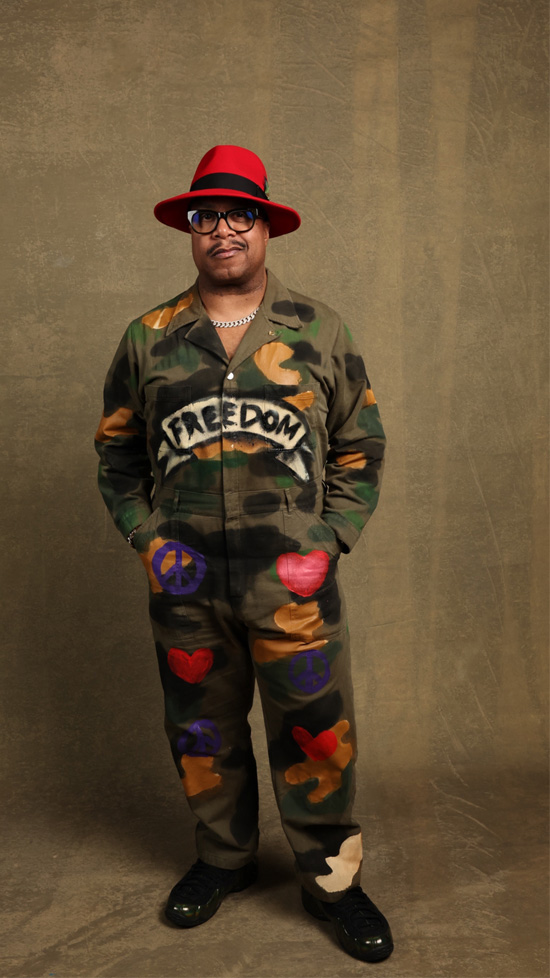 Nicholas Payton
Nicholas Payton
Guest Artist & Competition Judge
As a leading voice in American popular music, the Grammy Award-winning Nicholas Payton is a multi-instrumentalist, vocalist, composer, producer, arranger, essayist, and social activist who defies musical and artistic categories. All the while, he honors the tradition of what he terms “postmodern New Orleans music,” as well as the spirit of Black American Music, of which he states, “There are no fields, per se. There are lineages.”
The New Orleans-born Payton has followed his calling since growing up under the tutelage of his parents — acclaimed bassist Walter Payton and Maria Payton, a pianist and vocalist. Already a prodigy before entering the first grade, he began playing trumpet at age four and started performing professionally at age 10. Before the age of 20, he was already in demand by everyone from Danny Barker and Clark Terry to Elvin Jones and Marcus Roberts. Payton released his first album, From this Moment, in 1995 on the famed Verve label. He received his first Grammy nomination in 1997 for the album Doc Cheatham & Nicholas Payton, and for the category of Best Instrumental Solo, which found him winning the award that year.
Payton has released over 20 recordings as a leader, pushing musical boundaries and showcasing a variety of contemporary and traditional styles, while displaying his ambidextrous ability to play both the trumpet and keyboard at the same time when he’s inspired to do so. He has collaborated with numerous mentors and contemporaries alike, ranging from Common and Cassandra Wilson to Trey Anastasio, MonoNeon, and Jill Scott, to Dr. John, Joseph “Zigaboo” Modeliste of The Meters, Allen Toussaint, and Abbey Lincoln to name a few. His most recent album is DRIP (italicized), which features Christie Dashiell, Michael Franks, Robert Glasper, and Patrice Rushen.
“Everything I write is about life experiences. The music means nothing without life. A life lived. It’s not just notes on a page. It’s not just a technical exercise. It’s vibrations and energy,” Payton says. “And I’m striving to help lift, if possible, raise the vibration of the collective conscious one audience, one album, one song at a time. If I can’t do that, there’s no point in me playing. That’s why I play. It’s about contributing to society and inspiring. That’s my life as an artist, period. Challenging people to think differently, to think critically and to not be slaves to the system and the status quo.”
In addition to Payton’s work as a performer, he is an equally respected composer, having written The Black American Symphony an orchestral work, which the Czech National Symphony Orchestra commissioned and performed. He led a live concert performance of Miles Davis’ renowned Sketches of Spain with the Basel Symphony Orchestra in Switzerland. “Pretty much all the music that I play is centered in Black culture, Black music. And that’s why I’ve eschewed jazz and came up with the terminology, Black American Music, because I want to be connected to the whole of it,” Payton says about genre. “It’s all the same. John Coltrane and Charlie Parker and James Brown could be neighbors. So what’s the distinction there? The only difference in the music is who they came through, and where they’re from.”
As a leader, Payton’s seminal writings and discussions on the problematics of the term and associations of “jazz” have inspired musicians, researchers, music listeners, and thinkers alike. As such, he termed Black American Music, or #BAM for short, to represent the breadth of improvisational musical creations created by Black people in the U.S., regardless of genre. His introduction of #BAM into the lexicon of popular music discourse landed him an entry in the New York Times‘ “The Decade in Jazz: 10 Definitive Moments” in 2019.
“(Black American Music) is … a liberation music, it is our first global recognition in humanizing, if you will, a class of people who were systematically dehumanized for centuries,” Payton says. “The concern for me is to draw from the wellspring of all the great Black ancestors who inspired me to play this music in the first place. And to hopefully keep that energy, that spirit.”
Through his mission-driven work and art, Payton continues to creatively move boundaries, while inspiring and remaining inspired by the pioneering lineage of Black American Music, of which he is a part.
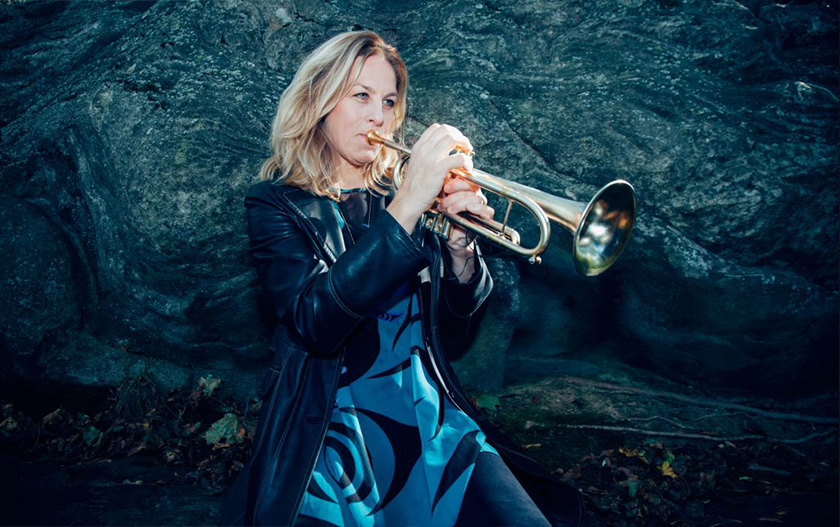 Ingrid Jensen
Ingrid Jensen
Guest Artist & Competition Judge
Ingrid Jensen has been hailed as one of the most gifted trumpeters of her generation. As a sought-out teacher, collaborator, and soloist, it is easy to see why the New York Times calls her “as versatile as she is vigorous.”
After graduating from Berklee College of Music in 1989, Jensen was offered a position at the prestigious Bruckner Conservatory in Linz, Austria. In the 1990s, she recorded three highly acclaimed CDs for the ENJA record label, becoming one of the most in demand trumpet players on the global jazz scene.
Settling in New York City, she joined the innovative jazz orchestras of Maria Schneider (1994- 2012) and Darcy James Argue (2002-present). She has performed with a multigenerational cast of jazz legends ranging from Clark Terry to Esperanza Spalding. Jensen has also performed alongside British R&B artist Corrine Bailey Rae on Saturday Night Live and recorded with Canadian pop icon Sarah McLachlan. Jensen is prominently featured on the Grammy Award winning Mosaic Project, led by drummer Terri-Lyne Carrington.
One of Jensen’s most frequent and closest collaborators is her sister, the saxophonist and composer Christine Jensen. She is a featured soloist on the Christine Jensen Jazz Orchestra’s Juno-award-winning album, Treelines (2011), and its successor, Habitat (2013). The sisters released a highly regarded small group recording entitled Infinitude (2016) on the Whirlwind label featuring the brilliant guitarist, Ben Monder and have further collaborated with Nordic Connect, an international band featuring pianist and composer Maggi Olin.
A dedicated jazz educator, Jensen has resided on the jazz trumpet faculties at the University of Michigan, Peabody Conservatory and Manhattan School of Music. She also served on the jazz faculty, teaching composition and arranging at Purchase College and the New School for Jazz in NYC. She performed and lectured as a guest artist with the Thelonious Monk Institute High School group featuring Herbie Hancock; and performed and taught regularly at the Centrum Jazz Workshop, the Brubeck Institute, the Banff Center for Jazz and Creative music, the Stanford Jazz Camp, the Geri Allen Jazz Camp for Young Women and the Betty Carter Institute under the direction of Jason Moran. She is currently the Dean and Director of Jazz Arts at the prestigious Manhattan School of Music.
Since her victory at the Carmine Caruso Trumpet Competition in 1995, Jensen has sat on the judges’ panel twice. She is regularly invited to trumpet festivals around the world and recently served as artist-in-residence with Tia Fuller at the prestigious Monterey Jazz Festival, where she also performed with her own quintet.
Her second project on the Whirlwind label honoring the late great Kenny Wheeler-Invisible Sounds (2018) was featured on NPR’s Jazz Night in America hosted by Christian McBride, receiving critical acclaim both in the US and abroad. Glowing reviews have earned her a loyal fan base around the globe, and she was hailed by the JJA as 2019’s Trumpeter of the Year as well, she is consistently listed in the top 5 in the Trumpet category of the Downbeat critics poll.
Ingrid records often as a guest on scores of side projects, appearing at major venues around the world both as a performer and an educator.
She is an integral member of the highly acclaimed Blue Note recording band, Artemis and continues to write for and perform with her own projects both in New York and beyond.
Ingrid plays a custom Monette trumpet, built personally by the master builder Dave Monette.
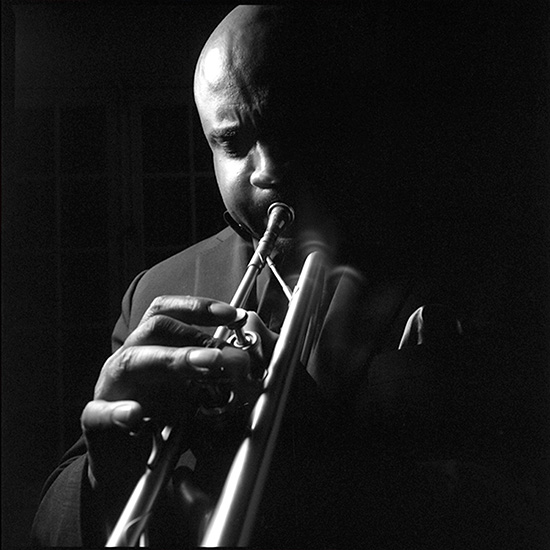 Terell Stafford
Terell Stafford
Guest Artist & Competition Judge
The title of his most recent album, Between Two Worlds, perfectly encapsulates the boundary-crossing life and career of renowned trumpet player, composer, and educator Terell Stafford. Hailed as “one of the great players of our time” by the late piano icon McCoy Tyner, Stafford unites any number of dichotomies in his music: jazz and classical traditions, stunning virtuosity and profound emotion, stylistic eclecticism and an immediately identifiable voice.
At the same time he straddles worlds in a variety of ways in his career, juggling roles as a thriving musician and an acclaimed educator, or as a visionary bandleader and an in-demand sideman for some of the music’s most legendary performers. Perhaps most importantly, he strives to strike that always precarious balance between a professional touring musician and a loving husband and father to his family.
Looking back over Stafford’s evolution, The New Yorker called him, “a distinguished bandleader and composer whose horn playing still startles with its verve and conviction.”
Those facets can be heard vividly on more than 180 recordings over the last three decades. That includes a dozen albums under Stafford’s own name, from his 1995 debut Time To Let Go to Between Two Worlds in 2023. Along the way he’s paid homage to formative influences including Lee Morgan and Billy Strayhorn and celebrated the tightly-knit and incredibly gifted community of musicians with whom he’s surrounded himself both on the bandstand and in the halls of academia.
In addition to the Terell Stafford Quintet, Stafford is the founder and Managing and Artistic Director of the Jazz Orchestra of Philadelphia (JOP), a big band composed of a generation-spanning roster of stellar Philly musicians, dedicated to celebrating the legacies of the many influential players and composers who emerged from the City of Brotherly Love.
As the Director of Jazz Studies and Chair of Instrumental Studies at Philadelphia’s Temple University, Stafford has become a nurturing mentor to new generations of up-and-coming jazz musicians. He’s helped to guide the university and its students to impressive victories at Jazz at Lincoln Center’s Jack Rudin Jazz Championship, winning the inaugural event in 2020; and to grow the school’s Grammy-nominated record label, BCM&D, with recordings by the Temple University Jazz Band (including guest artists including Christian McBride, Joey DeFrancesco, Branford Marsalis, Jimmy Heath, Jon Faddis, and Dick Oatts) and all-star ensembles featuring Stafford and his fellow faculty members.
Born in Miami and raised in Chicago, Stafford began studying classical trumpet at the age of 13. He first encountered jazz while earning his degree in music education at the University of Maryland – a practical compromise urged by his parents while he pursued a career as a classical musician. A fortuitous meeting with Wynton Marsalis led Stafford to study with Dr. William Fielder at Rutgers University, a vital mentorship that open the young trumpeter’s mind to explore a diverse range of genres and styles. Marsalis has remained a strong supporter, later inviting Stafford to perform with his Jazz at Lincoln Center Orchestra and offering guidance as Stafford developed his own Jazz Orchestra of Philadelphia.
It was at that point that Stafford began to delve deeply into the history of jazz, finding foundational influences in bebop greats like Clifford Brown and Lee Morgan. During that time he also connected with saxophonist Tim Warfield, who would go on to become one of his closest friends and collaborators, and who remains a key member of the Terell Stafford Quintet today. The two frequented jam sessions along the east coast, finding a vibrant home at the famed Philadelphia club Ortlieb’s Jazzhaus, where the house band featured such luminaries as organist Shirley Scott, pianist Sid Simmons, and drummer Mickey Roker.
Scott proved to be another guiding light for Stafford, enlisting him and Warfield to join her quintet as well as the house band for a revival of the TV game show You Bet Your Life. Both would make memorable early contributions to Scott’s final studio album, A Walkin’ Thing, in 1992. While at Rutgers, Stafford was also invited to join Bobby Watson’s Horizon, a group that the saxophonist formed in the image of his own proving ground, Art Blakey’s Jazz Messengers. Through that experience Stafford went on to record with Watson’s big band on the 1993 release Tailor Made, and to join McCoy Tyner’s Latin All-Star Band, helping to hone his skills alongside Latin jazz giants including trombonist Steve Turre, flutist Dave Valentin, and percussionist Jerry Gonzalez.
Since that time Stafford has played an integral role in such legend-fronted groups as the McCoy Tyner Sextet, Benny Golson Sextet, Kenny Barron Quintet, Frank Wess Quintet, Jimmy Heath Quintet and Big Band, Jon Faddis Jazz Orchestra, Carnegie Hall Jazz Band and Dizzy Gillespie All-Star Alumni Band. He has been a longtime member of the Vanguard Jazz Orchestra, which garnered a Grammy Award in 2009 as Best Large Ensemble for their album Live at the Village Vanguard. Stafford has enjoyed fruitful tenures with the Grammy-nominated Clayton Brothers band and the Clayton-Hamilton Jazz Orchestra, as well as with drummer Matt Wilson’s eclectic group Arts and Crafts. He has performed with bands led by Cedar Walton, Sadao Watanabe, and Herbie Mann, while his most recent collaborations include the iconic saxophonist Charles McPherson and the Grammy-anointed Best New Artist, rising star singer Samara Joy. Stafford has also composed new music for the PRISM Saxophone Quartet.
Following the release of Time To Let Go (Candid) in 1995, Stafford released Centripetal Force (Candid) in 1996, Fields of Gold (Nagel-Heyer) in 2000, New Beginnings (MAXJAZZ) in 2003, and the live Taking Chances (MAXJAZZ) in 2007, a catalogue that includes such acclaimed musicians as Mulgrew Miller, Bill Cunliffe, Antonio Hart, Ron Blake, Stefon Harris, Victor Lewis, Edward Simon, Steve Wilson, Bruce Barth, Derrick Hodge, Dick Oatts, and, of course, Tim Warfield. In 2011 he released his gorgeous take on the music of Billy Strayhorn with This Side of Strayhorn (MAXJAZZ), and in 2015 earned an NAACP Image Award nomination for Brotherlee Love, his homage to the late, great Lee Morgan. He co-led a quintet with sax giant Dick Oatts for 2009’s Bridging the Gap, and united with Oatts and other Temple faculty and friends (including Warfield, Barth, Byron Landham, Justin Faulkner and Mike Boone) for Family Feeling in 2018 and Fly With the Wind in 2023 (both BCM&D).
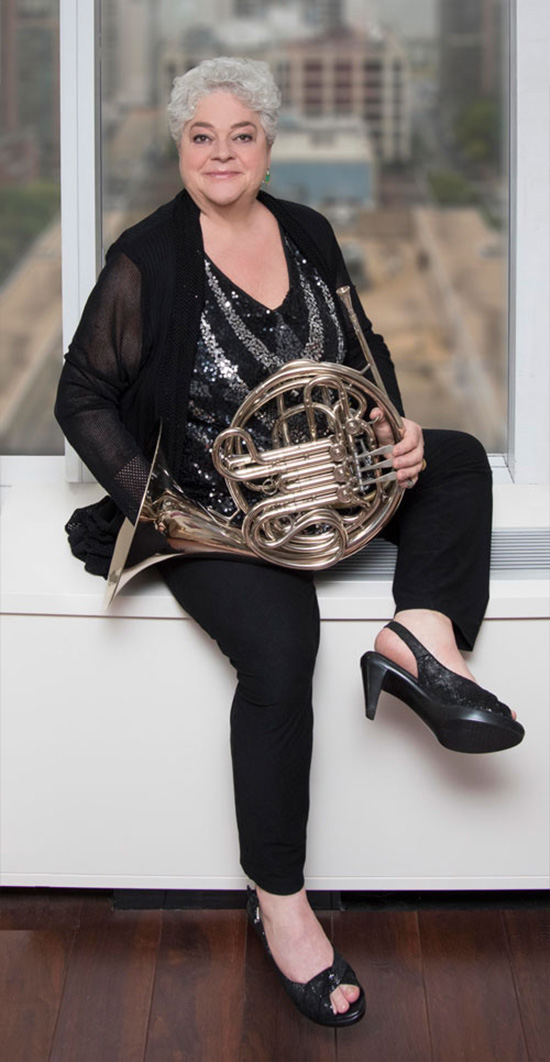 Julie Landsman
Julie Landsman
Guest Clinician
Principal horn with the Metropolitan Opera Orchestra for 25 years, Julie Landsman is a distinguished performing artist and educator. She received a bachelor of music degree from The Juilliard School in 1975 under the tutelage of James Chambers and Ranier De Intinis, and has served as a member of the Juilliard faculty since 1989.
A native of Brooklyn, New York, Landsman achieved her dream of becoming principal of the MET in 1985 and held that position until 2010. She has also shared her talent to many other ensembles within the city as a current member of the Orpheus Chamber Orchestra and having performed and recorded with the New York Philharmonic. Additionally, she has performed with numerous groups outside the city, including her co-principal position with the Houston Symphony, substitute principal position with the St. Paul Chamber Orchestra, and recent performances with The Philadelphia Orchestra as Associate principal horn, and the Los Angeles Chamber Orchestra, principal horn.
She has recorded for RCA, Deutsche Gramophone, CRI, Nonesuch and Vanguard labels, and is most famous for her performance of Wagner’s “Ring” cycle as solo horn with the MET Opera under the direction of James Levine. Landsman has performed as chamber musician at many festivals and concert series, including the Marlboro Music Festival, Chamber Music Northwest, the Santa Fe Chamber Music Festival, Sarasota Music Festival, La Jolla Summerfest, the Chamber Music Society of Lincoln Center, Orcas Island Chamber Music Festival, and the Metropolitan Museum of Art, where she appeared as a guest artist with the Guarneri Quartet. In the summers she performs and teaches at the Music Academy of the West , the Sarasota Music Festival, and the Aspen Music Festival.
World renowned as a master teacher, Julie Landsman holds faculty positions at The Juilliard School and Bard College Conservatory, and teaches frequently as a guest at the Curtis Institute. She has presented master classes at such distinguished institutions as The Colburn School, Curtis Institute, Eastman School of Music, Mannes College of Music, Manhattan School of Music, USC Thornton School of Music, Cal State Long Beach, Rowan University, University of Oklahoma, and University of Southern Mississippi, to name a few. She is also a visiting master teacher at the New World Symphony in Miami. Her international presence includes master classes in Norway, Sweden, and Israel. In 2016 Landsman was an honored jury member at the ARD horn competition in Munich, Germany.
Her students hold positions in the Metropolitan Opera Orchestra, Philadelphia Orchestra, Los Angeles Philharmonic, San Francisco Opera and Ballet Orchestras, Washington National Opera Orchestra, Dallas Symphony, St. Louis Symphony, New Jersey Symphony, Colorado Symphony, and the American Brass Quintet. She recently received the “Pioneer Award” from the International Women’s Brass Conference and was a featured artist at the International Horn Society Conference in 2012 and 2015.
Her recent series of Carmine Caruso lessons on YouTube have led to further fame and renown among today’s generation of horn players. Landsman currently resides in Nyack, New York.
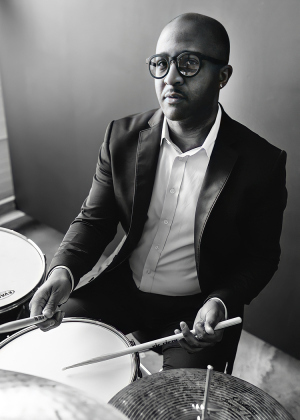 Quincy Davis
Quincy Davis
Associate Professor of Jazz Drumset - University of North Texas
Currently Associate Professor of Jazz Drumset at the University of North Texas, Quincy Davis, born in Grand Rapids, Michigan, comes from a very musical family. He began taking piano and drum lessons at age 6. In his elementary and middle school bands, he also played trumpet and tuba. Both of his parents are musicians who exposed him to different styles of music including instrumental jazz, European classical, gospel, opera, R&B and jazz-fusion.
His formal music studies began during his 11th grade year at Interlochen Arts Academy. There he studied classical percussion and began playing drumset in jazz bands with peers for the first time.
After graduating from Interlochen Arts Academy in 1995, Davis began studying at Western Michigan University (WMU). There he studied with the drum legend, Billy Hart. During his collegiate years, Davis gained experience playing in big bands and small groups at various collegiate jazz festivals. Davis’ talents would be recognized at these festivals through accolades by notable musicians Benny Green, Bunky Green, Jon Faddis, Rufus Reid, Roy Haynes, Carl Allen, Louis Hayes and Wallace Roney.
After graduating from WMU in 1999, Davis taught elementary and middle school instrumental music in the Grand Rapids area for one year where he taught beginner, intermediate and advanced concert band before moving to New York City.
In the summer of 2000, Davis moved to New York City where he quickly became one of the highly sought after “young cats” on the New York jazz scene. In New York, Davis frequently played at all the famous jazz venues including Village Vanguard, Blue Note, Smalls, Jazz Standard, Birdland, Iridium, Dizzy’s Coca-Cola Club and Smoke.
During his time in New York City, Davis performed and toured with world-renowned musicians Frank Wess, Ernestine Anderson, Cecil McLorin-Salvant, Russell Malone, Eric Reed, Paquito D'Rivera, Kurt Elling, Christian McBride, Buster Williams, Eric Alexander, Leslie Odom Jr., Aaron Parks, Seamus Blake, Vanessa Rubin, Aaron Goldberg, Jon Faddis, Jimmy Heath, Gerald Clayton, The Clayton Brothers, Harold Mabern, Aaron Parks, Peter Bernstein, Regina Carter, David Hazeltine, Roy Hargrove, Randy Johnston, Bob Sheppard, Paula West, Houston Person, Curtis Fuller, New York Voices, The Mingus Orchestra, Ryan Kisor and Wessell Anderson. Davis still performs with many of these artists.
In 2010, Davis accepted a teaching position at the University of Manitoba (Canada) where he was the assistant professor of jazz drumset. He, along with the other world-renowned faculty, helped to bring more visibility to the program that has since produced some very successful students, winning many awards and making a name for themselves on the international stage.
In 2013, Quincy released his debut recording as a leader, Songs In the Key of Q, which rose to #1 on Jazz Week’s radio jazz chart. His sophomore release, Q Vision, was ranked #3 for 5 weeks. Both albums feature all original music written by Davis.
Davis began teaching at the University of North Texas in 2017 where he is currently chair of the drumset department.
Quincy can be heard on over 50 albums playing with many notable jazz artists including Tom Harrell, Gretchen Parlato, Benny Golson, Steve Nelson, Ted Rosenthal, Marcus Printup, Dave Stryker, Walt Weiskopf, Stefon Harris, Randy Napoleon, Benny Green, Aaron Diehl, Frank Wess, Bobby Watson, Xavier Davis, Danny Grissett, Vincent Gardner, Darmon Meader, Sachal Vasandani and many more.
Davis stays very active as a performer in the United States and internationally. His passion for teaching is not only evident through his teaching at the University of North Texas, but also through his many video lessons on jazz drumming and interviews with master drummers on his YouTube channel which currently has 15k subscribers.
Quincy is a proud endorser of Zildjian cymbals, Tama drums and Vic Firth drumsticks.
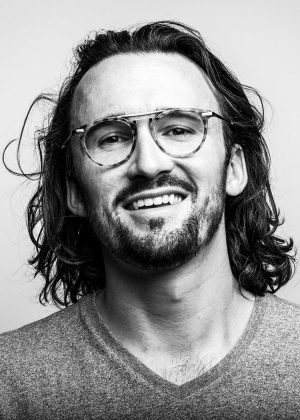 Dave Meder
Dave Meder
Associate Professor of Jazz Piano - University of North Texas
Pianist, composer, and educator Dave Meder is one of the prominent artists of his generation, known for a broad musical palette and interdisciplinary approach recognized in the Thelonious Monk International Jazz Piano Competition, the American Pianists Awards, and the Chamber Music America New Jazz Works commissioning program. His defining aesthetic is a strikingly postmodern sense of stylistic adventure, incorporating what All About Jazz describes as “a vibrant hybrid of the whole American spectrum.”
In his 2019 debut, Passage, Meder established himself as a uniquely versatile artist, traversing his way through an affecting gospel standard, a bold deconstruction of Thelonious Monk, a title track inspired by American minimalists Philip Glass and John Adams, a dramatic elegy inspired by Baroque-era operatic harmonies, as well as select pieces featuring generation-defining saxophonists Miguel Zenón and Chris Potter. The Ottawa Citizen counted Passage among its top five jazz debuts, and All Music Guide included the album in its “Favorite Jazz Albums” list, noting the balance of “post-bop harmonies with soulful gospel warmth and contemporary classical sophistication.”
On his 2021 album, Unamuno Songs and Stories, Meder again leveraged these diverse musical influences in a stunning response to recent sociopolitical turmoil in the United States. Using the writings of Spanish Civil War-era philosopher Miguel de Unamuno as a historical analogy, Meder and his trio (with featured guests Philip Dizack and Miguel Zenón), embark on an intensely emotive set that explores the tensions between democracy and authoritarianism, internationalism and nationalism, and religious faith and non-belief. The 2023 album New American Hymnal served as a worthy follow-up, further exploring connections and metaphors between American religion and civic culture.
His original compositions have garnered various awards and commissions, including the Chamber Music America New Jazz Works commissioning grant, the ASCAP Young Jazz Composers Award, prizes in the International Songwriting Competition, and the First Music Commission of the New York Youth Symphony. Meder has headlined at a host of prominent performance venues and educational residencies around the world, including Jazz at Lincoln Center, Smalls Jazz Club, The Kennedy Center, Beijing Normal University’s International Music Festival, and a US State Department sponsored performance residency in Honduras. He is a recipient of the prestigious Fulbright US Scholar Award for Visual and Performing Awards, which brought him to Egypt as a guest lecturer of jazz improvisation.
Remarkably, the beginnings of Meder’s jazz education were mostly self-guided. Born, raised and classically trained in Tampa, Florida, he was still a teenager when he began teaching professionally at a local music shop, while also building his own private teaching practice. While ensconced in his classical studies, he was persuaded by friends to help them form an after-school jazz band in their middle school, whose music department lacked a formal jazz program. With oversight from a generous band director, the jazz ensemble became a reality and Meder became enamored of the art form, working at it largely on his own until college.
During his undergraduate studies at Florida State University — from which Meder graduated summa cum laude with degrees in jazz studies, Spanish and political science, along with a certificate in sacred music — tutelage under Marcus Roberts bolstered his authentic handle on historical jazz piano styles, while his broad-based academic studies would set the stage for the far-reaching and sometimes counterintuitive influences seen in Unamuno Songs and Stories, New American Hymnal and other recent projects. During his college years, Meder was also fortunate to immerse himself in the jazz lineage firsthand through participation in two of the most crucial incubators in jazz education: the Betty Carter Jazz Ahead program at The Kennedy Center and the Steans Music Institute at the Ravinia Festival (led at the time by the late David Baker). Upon his graduation in 2013, Meder won the esteemed Jacksonville Jazz Piano Competition, formerly known as the Great American Jazz Piano Competition.
A later move to New York afforded Meder a chance to study with the leading edge of jazz: Fred Hersch, Mark Turner, Ari Hoenig, Dave Douglas, and a full year under the mentorship of the legendary Kenny Barron — while also studying classical piano with Julian Martin as well as advanced counterpoint and harmony with Philip Lasser, a leading disciple of the famous Nadia Boulanger school of composition. He now holds a professorship at the University of North Texas, one of the most renowned jazz studies programs in the world, where he continues the tradition of direct mentorship that has sustained the legacy of jazz to this day.
Meder holds an MM from New York University and an Artist Diploma from The Juilliard School, where he taught and toured as part of the premier ensemble of the school. Concurrent to his graduate studies, Meder worked for three years as the music director of Fordham Lutheran Church in the Bronx, furthering another creative through-line in his life. “I was raised in the church, and I’ve always played in it too,” Meder says. “In the context of all the other ‘brainy’ stuff I’ve studied in music school, [the church] forced me to make a soulful connection to it—to try and make what I was absorbing more personal and musical.” Indeed, his music conveys a tremendous depth, yet remains eminently soulful, an aspiration not often achieved in modern jazz.
Dave Meder is a Yamaha Artist.
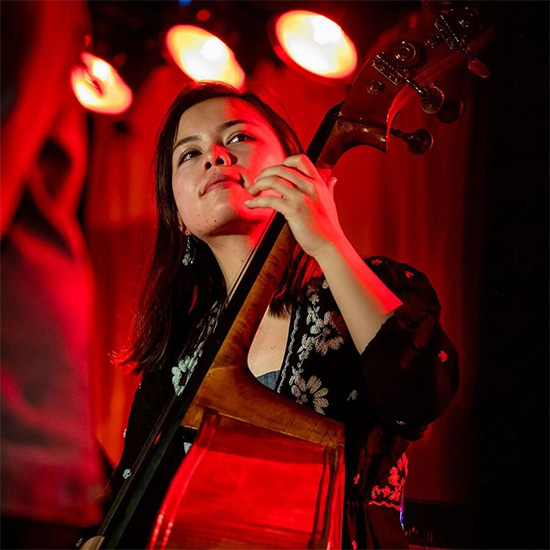 Kanoa Mendenhall
Kanoa Mendenhall
Kanoa Mendenhall is a bassist and composer based in New York. Known for her poetic and melodic approach to the bass, Kanoa brings her deep respect and love for multiple musical traditions together, such as jazz, Black American Music, experimental, and folk ritual music from her birthplace Japan. She is a graduate of Columbia University, and an alumni of the Columbia-Juilliard Exchange, where she studied with Ben Wolfe and participated in studio classes with Ron Carter. Kanoa has performed around the world as a sideman with artists such as Joel Ross, Aaron Parks, Dayna Stephens, and has been part of the faculty at JazzDanmark’s Summer Session, Siena Jazz Workshop, Jazz Camp West, and Stanford Jazz Workshop. Her bass playing can be heard on more than 15 released albums as a sideman, with more music to be released in the near future.
 Andrew Stephens
Andrew Stephens
Andrew Stephens is a trumpeter and educator from Sacramento, California, based in New York City since 2021. Active in both the New York and SF Bay Area jazz scenes, he is the head instructor at the Louis Armstrong House Museum’s trumpet program (teaching beginning students aged 3 to 16), maintains a duo project with Ben Goldberg, and has shared the stage with Vince Giordano and the Nighthawks, Taylor Eigsti, Roy McCurdy, Gabi Cavassa, Neal Caine, Kenny Wollesen, Dan Levinson, Georgia Heers, Nicola Caminiti, Evan Christopher, Ches Smith, Steve Cardenas, Thomas Morgan, Russell Hall, and many others. Every summer he returns to California to teach at the Stanford Jazz Workshop and the Teagarden Jazz Camp, where he was a student for many years. Andrew was an instructor at Sonoma State University from 2018 through 2021, where he taught private lessons and led the university's first early jazz ensemble. He holds a BA in Pure Mathematics with Honors from UC Berkeley (2018) and a Masters of Music from Juilliard (2023). Andrew is the winner of the 2021 Ryan Anthony Memorial Trumpet Competiton, placed 2nd in the 2019 Carmine Caruso Competition, and was a finalist again in 2023 and 2025.
 Austin Ford
Austin Ford
Austin Ford is a Jazz trumpet player from Portland, Oregon, currently based in New York City. He earned his undergraduate degree from the University of North Texas, where he was a member, arranger, and composer for the Grammy-nominated One O’Clock Lab Band. During his time there, he collaborated with renowned artists such as Maria Schneider, Regina Carter, and Tom Harrell. While in Texas, he also recorded his debut album, Launchpad, which is available on all major streaming platforms.
Austin went on to complete his master’s degree at the Manhattan School of Music, studying under acclaimed musicians like Ingrid Jensen, Jon Faddis, and Scott Wendholt. Now an active performer in New York City, he appears regularly at premier venues, including Jazz at Lincoln Center, Birdland, and The Django. Austin also has performed on the Broadway show “Just in Time” where he played second and lead trumpet.
Austin holds accolades from many prestigious trumpet competitions such as the 2021 ITG Carmine Caruso Jazz Trumpet Competition, the 2021 ITG Ryan Anthony Jazz Trumpet competition, in which he placed second, and the 2021 U.S. Army Blues Jazz Solo Competition, in which he placed first.
 Carter Eng
Carter Eng
Carter Eng is a trumpeter and composer originally from Seattle, Washington and currently based in New York. Carter has performed all across the U.S and Europe, including the Newport, North Sea and Montreux Jazz Festivals as well as Jazz at Lincoln Center, Dizzy’s Club and SFJazz. In 2023, he was awarded second place in the International Trumpet Guild Jazz Improvisation Competition and was selected for the JAS Academy Big Band led by Christian McBride. With the Roosevelt High School Jazz Band, winners of the 2019 Essentially Ellington Competition, he has received numerous soloist awards as well as the school’s “Waldo King Inspirational Award”. After completing his undergraduate studies at the San Francisco Conservatory of Music, he returned back home to Seattle and performed regularly as a sideman and leader and was featured on the cover of Earshot Jazz Magazine. Carter is currently pursuing a master’s degree at the Manhattan School of Music.
 Geoff Gallante
Geoff Gallante
Hailing from Alexandria, VA, Geoff Gallante is a highly acclaimed jazz trumpeter based in New York City. At the tender age of four, Gallante became fascinated with an old trumpet laying idle at his grandmother’s house, and his parents immediately sought out lessons. His natural talent was so evident that at just five years old, he qualified for the top ensemble at a local high school band camp. This led to a featured story in the Washington Post, and soon after, his appearance on The Tonight Show with Jay Leno jump-started his long and successful performance career.
As a young kid, Gallante was guest soloist with various Military bands and concert bands, national anthem performer for over 10 professional sports franchises, and was even invited to appear at the White House at age six. As he matured, he became enthralled with jazz and began transcribing the works of masters like Miles Davis and Clifford Brown. His classical training and perfect pitch enabled him to excel in jazz throughout middle and high school, earning him spots in both the GRAMMY Band and the Next Generation Jazz Orchestra for three consecutive years. In 2018, he was selected for Carnegie Hall's National Youth Orchestra Jazz European tour, directed by Sean Jones with special guest Dianne Reeves. Meanwhile, he also led his own groups at prestigious clubs such as Blues Alley, the Iridium, Jazz at the Kitano, the Deer Head Inn and Herb Alpert’s Vibrato Grill.
Upon graduating high school, Gallante was awarded scholarship to attend the Manhattan School of Music to study with Jon Faddis and Ingrid Jensen. He later went on to pursue a graduate degree from the Juilliard School where he studied with Mike Rodriguez and Kenny Washington, and it was not long before Gallante was frequently touring nationally and abroad with Wynton Marsalis and the Jazz At Lincoln Center Orchestra. He has performed all around NYC with artists including Arturo O’Farrill, Ulysses Owens Jr., Mimi Jones, Russel Hall, Julius Rodriguez and the Etienne Charles Big Band. Recently, Gallante was one of five finalists invited to Namur, Belgium to compete in the 2023 Carmine Caruso International Jazz Solo Competition.
 Stéphane Clément
Stéphane Clément
Stéphane Clément, born on October 25, 2000, of German and Haitian decent, in Miami, Florida, is a multifaceted artist, designer, producer, trumpeter, and composer. His journey in music began with notable achievements early on, as he received YoungArts prizes in Jazz Trumpet in both 2018 and 2019. Also during this time, he embarked on two Herbie Hancock Institute National Peer-to-Peer tours, sharing his talent alongside other exceptional high school musicians. His prowess led to performances at prestigious events such as the Thelonious Monk International Piano Competition Finals & All-Star Gala at the Kennedy Center in Washington, DC.
At the age of 18, Stéphane was awarded a scholarship to pursue a Bachelor’s Degree in Jazz Studies at the Manhattan School of Music. During his time in Manhattan, he had the privilege of studying under renowned artists such as Nadia Noordhuis, Ambrose Akinmusire, and Jon Faddis, enriching his musical depth.
In 2020, Stéphane joined Ambrose Akinmusire’s esteemed ensemble ‘Banyan,’ further expanding his musical horizons. His collaborative spirit and creative vision have contributed to the production of several critically acclaimed albums, collaborating with distinguished artists including Jahari Stampley, Derrick Hodge, Bokani Dyer, Jon Faddis, Dion Kerr, among others.
Beyond his musical endeavors, Stéphane co-founded a sound bath collective with trumpeter Nicolaus Gelin, reflecting his deep exploration of sound. In 2024, he held his first artist residency, further establishing himself as an innovative force. In 2025, they debuted their first international residency in Barcelona, Spain, marking the beginning of their efforts to establish a global presence.
Stéphane has graced the stages of world-renowned jazz clubs, including Dizzy’s Club Coca-Cola and The Jazz Gallery, captivating audiences with his distinctive style and virtuosity. He has also been invited to several prestigious residencies, including the Black Rock Senegal initiative led by Kehinde Wiley.
Driven by a passion for interdisciplinary exploration, Stéphane endeavors to blur the boundaries between art and life. His current aspiration is to foster connections across various art forms and passions, seeking innovative ways to express his creativity and inspire others along the way.
Location
The Carmine Caruso Competition will take place at Paul Voertman Concert Hall, located on the University of North Texas (UNT) campus:
Paul Voertman Concert Hall
415 S Avenue C
Denton, TX 76203
Directions
From Airports:
Visitors traveling by air can fly into one of the following airports:
Dallas/Fort Worth International Airport (DFW) – 25 miles from Denton
Dallas Love Field Airport (DAL) – 35 miles from Denton
From DFW Airport (Recommended Option - 30 minutes)
- Take TX-121 N from the airport.
- Merge onto I-35E N toward Denton.
- Take exit 467 for North Texas Boulevard.
- Turn right onto North Texas Boulevard.
- Turn right onto West Highland Street.
- Turn left onto South Avenue C.
- The venue will be on your left.
From Dallas Love Field (40 minutes)
- Take Herb Kelleher Way to Mockingbird Lane and head west.
- Merge onto I-35E N toward Denton.
- Follow the same steps as above from exit 467.
Driving Directions:
From the North (Oklahoma & Gainesville, TX)
- Take I-35 S toward Denton.
- Merge onto I-35E S toward Dallas.
- Take exit 467 for North Texas Boulevard.
- Turn left onto North Texas Boulevard.
- Turn right onto West Highland Street.
- Turn left onto South Avenue C.
- The venue will be on your left.
From the South (Dallas & Fort Worth)
- Take I-35E N toward Denton.
- Take exit 467 for North Texas Boulevard.
- Turn right onto North Texas Boulevard.
- Turn right onto West Highland Street.
- Turn left onto South Avenue C.
- The venue will be on your left.
From the East (McKinney & Frisco)
- Take US-380 W toward Denton.
- Turn left onto North Texas Boulevard.
- Turn right onto West Highland Street.
- Turn left onto South Avenue C.
- The venue will be on your left.
From the West (Decatur & Bridgeport)
- Take US-380 E toward Denton.
- Turn right onto North Texas Boulevard.
- Turn right onto West Highland Street.
- Turn left onto South Avenue C.
- The venue will be on your left.
Hotels
For your stay in Denton, we recommend the following hotels:
Embassy Suites by Hilton Denton Convention Center
3100 Town Center Tr, Denton, TX 76201
(940) 243-3799
Website
Best Western Premier Crown Inn & Suites
2450 Brinker Rd, Denton, TX 76208
(940) 387-1000
Website
Both hotels offer comfortable accommodations and are within a short driving distance to the UNT campus.
 Additional sponsorship provided by
Additional sponsorship provided by